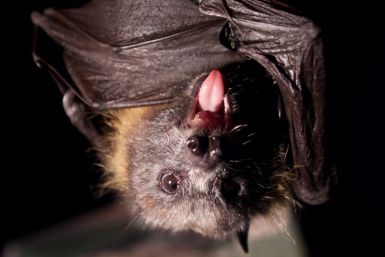Scotland Floods: All the Latest Information as Floods Return
Infrared sensors on the lips of Vampire bats allow the animals to locate blood vessels in their prey, scientists have discovered.
The United Kingdom is set for a two week tropical heat wave with temperatures to soar above 30C for most of the two-week period.
A species of rat smears poison from a toxic tree onto its body to evade predators, scientists have discovered.
According to experts, day after day, Bangkok sinks, with the most pessimistic saying part of Thailand's capital could be submerged by 2030, Le Monde has reported.Specialists have also warned that special preventive policies should be implemented as in the case the natural disaster does take place, thousands of lives could be at stake.
During a climate change debate at the National Press Club in Canberra Australia, Lord Christopher Monckton argued that cutting emissions to curb global warming is like trying to "swat" an asteroid away with a cricket bat.
Jack Crabtree, a retired wildlife biologist from Lake Jackson, Texas, reportedly spotted the mythical Chupacabra near his home.Crabtree and his wife told ABC News that On July 4 they saw the hairless animal around a creek in the back of their house.
The western population of gray (or grey) whales is one of the most threatened group of cetaceans on the planet, with only about 130 remaining, including an estimated 26 breeding females, and a small area near the Sakhalin coast is their only known feeding ground but efforts to protect are still insufficient, scientists warn.
While announcing that the U.K. had exceeded its target to reduce its carbon emissions, Energy Secretary Chris Huhne warned that global warming and its affects could reverse the progress of civilisation leading to all-out wars between nations.
Mounting scientific evidence is increasingly against the theory that mobile phone use causes brain tumours, according to a comprehensive analysis from an independent international expert panel.


























